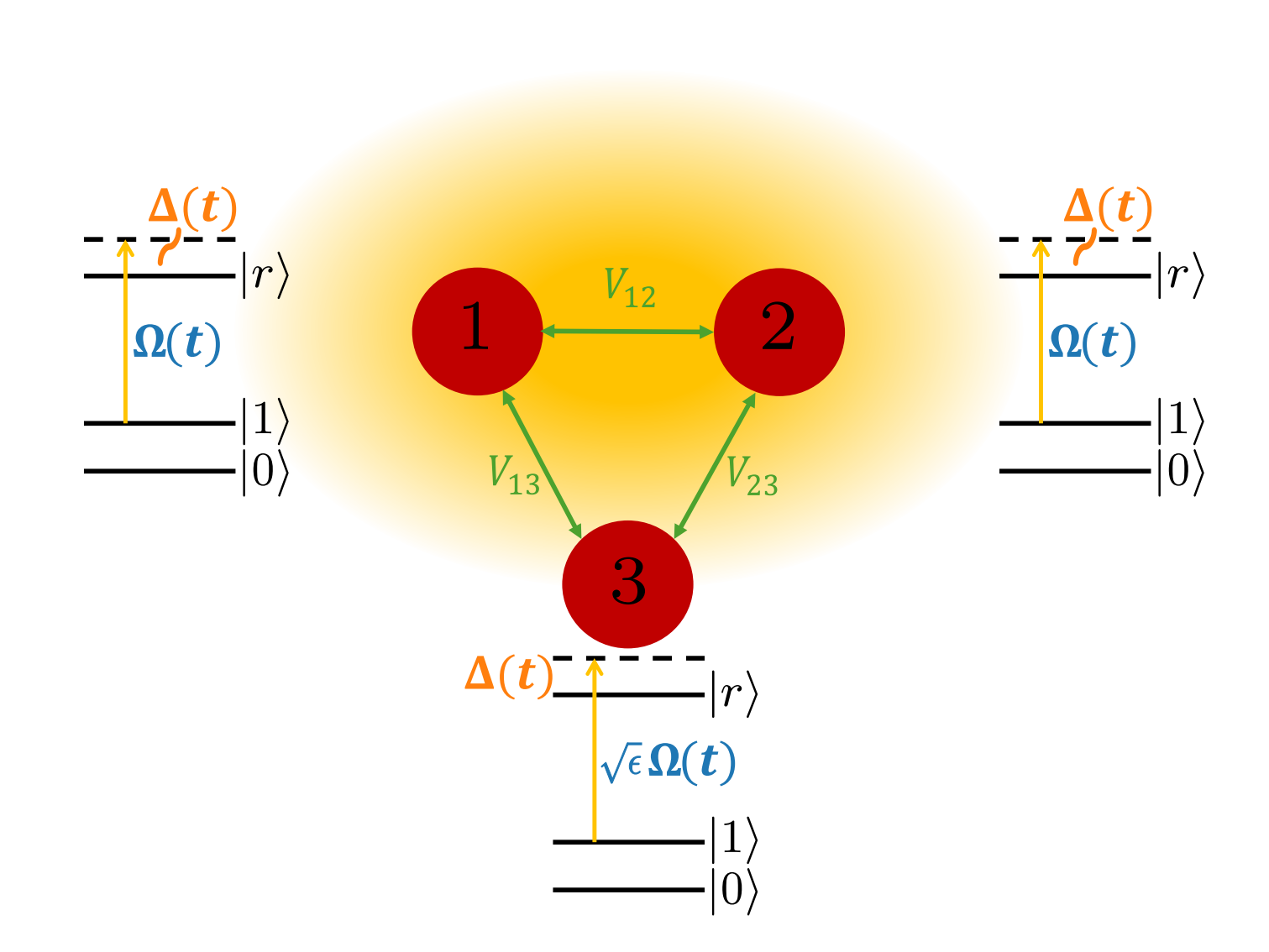On neutral atom quantum computers, several methods exist to execute entangling gates. One possibility is to bring gate atoms close together, far away from neighboring atoms. A global laser pulse then drives the entangling gate on the gate atoms, while performing only a trivial rotation on the others. Alternatively, one can locally focus the laser onto the gate atoms to implement the gate. This has the benefit that time consuming shifts are avoided and atoms can be stored in denser arrays. However, this comes with the challenge that a small fraction of laser light typically leaks onto neighboring atoms, inducing crosstalk and reducing gate fidelities.
In our new publication, we develop a method to suppress this crosstalk for a controlled-Z gate. We show that the fidelity is mainly reduced by an amplitude error. Using perturbation theory, we develop a spin-echo-inspired double-pulse protocol that cancels the leading order of this error. Numerical simulations confirm that our new double-pulse protocol decreases the gate infidelity by two orders of magnitude over a broad range of experimentally relevant parameters. Additionally, we propose a circuit to cancel remaining phase errors, further reducing the gate infidelity by an additional order of magnitude. Our results pave the way for using local addressing for high-fidelity quantum gates on Rydberg-based quantum computers.
